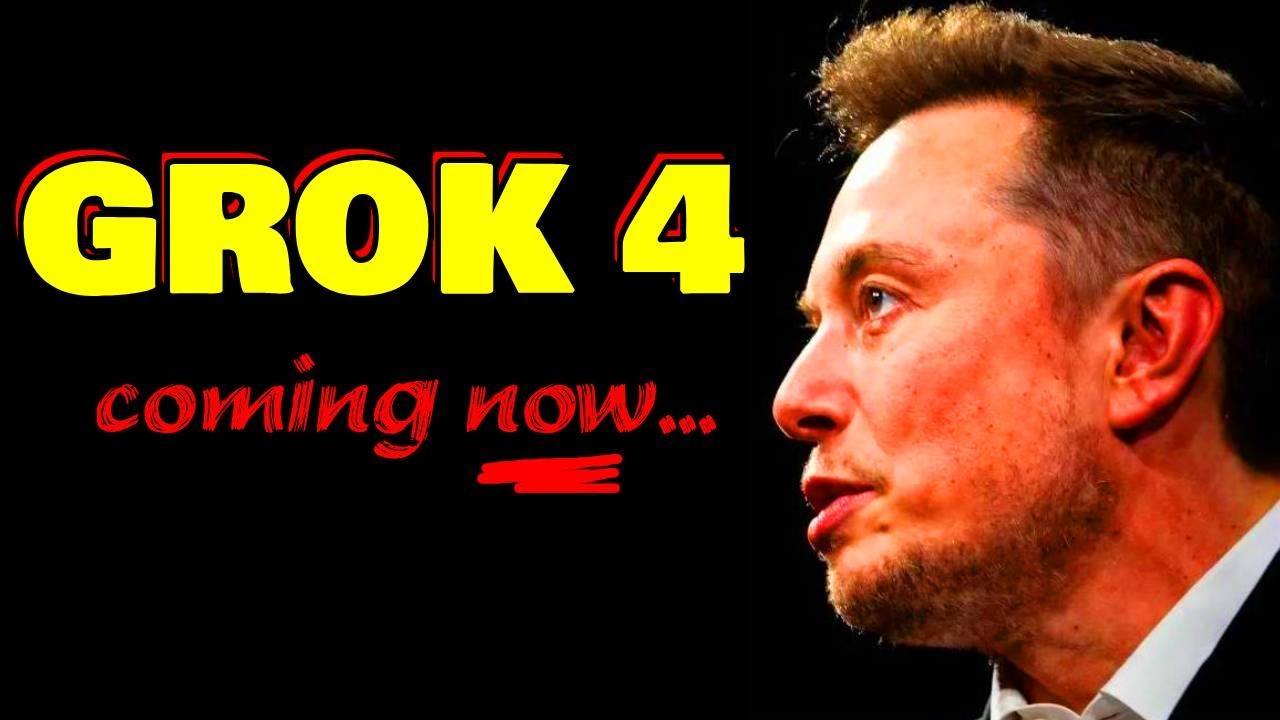The video discusses Elon Musk’s upcoming Grok 4 AI model launch, Tesla’s milestone in fully autonomous vehicle delivery, and Neuralink’s breakthrough brain-computer interface demonstrated through gaming, while highlighting the competitive AI coding landscape with players like Google, OpenAI, and Anthropic. It emphasizes that AI coding tools currently function as collaborative aids rather than fully autonomous coders, with the future of software development relying on human-AI partnerships to enhance efficiency and accessibility.
The video begins with the announcement that Grok 3.5 has been cancelled, but Grok 4 is set to launch shortly after July 4th. Elon Musk mentioned that Grok 4 requires one more significant training run focused on a specialized coding model. The video highlights recent milestones from Musk’s companies, including Tesla’s first fully autonomous delivery of a Model Y directly from the factory to a customer’s home, showcasing the advanced capabilities of Tesla’s self-driving technology. Additionally, Neuralink demonstrated a patient controlling a virtual joystick to play Call of Duty using brain signals interpreted by an AI model, marking a remarkable breakthrough in brain-computer interfaces.
The discussion then shifts to the competitive landscape of AI coding agents, with Google launching its Gemini CLI agent powered by Gemini 2.5 Pro, offering generous free usage limits. Other major players like OpenAI and Anthropic are also in the race, with OpenAI acquiring Windsurf for billions. Elon Musk’s Grok models, while not currently leading, are rapidly catching up, leveraging Tesla’s vast data from real-world driving to enhance visual and contextual understanding. The video emphasizes that while Musk’s AI efforts are ambitious, overtaking the top spot in AI coding won’t be easy or immediate.
A significant portion of the video focuses on the evolving role of AI in software development. The current AI coding tools combine large language models (LLMs) with scaffolding and human oversight, rather than fully autonomous coding agents. This hybrid approach allows companies to gather valuable data on coding workflows, improving their models continuously. The video suggests that fully autonomous AI coders are not expected imminently, and the future likely involves humans collaborating closely with AI to code more efficiently, rather than AI replacing human developers entirely.
The video also touches on Salesforce’s CEO claiming that AI now performs half of the company’s work, sparking curiosity about what Salesforce actually does. It explains Salesforce as a complex customer relationship management (CRM) platform with many moving parts, and notes that while AI agents are becoming more powerful, the long-term coherence problem for fully autonomous AI agents remains unsolved. The video encourages viewers to stay tuned for breakthroughs in this area, which could revolutionize AI agent capabilities in the near future.
Finally, the video offers a practical demonstration of Google’s Gemini 2.5 Pro coding model, showing how users can create interactive simulations and games with minimal coding knowledge. This highlights how AI is lowering barriers to entry for software development, making it more accessible to beginners. The presenter advises that while traditional computer science education remains valuable for aspiring software engineers, AI-assisted coding tools provide a promising alternative for those looking to quickly acquire new skills or experiment with coding. The overall message is that the future of coding will be a collaborative effort between humans and AI, transforming how software is developed and learned.
